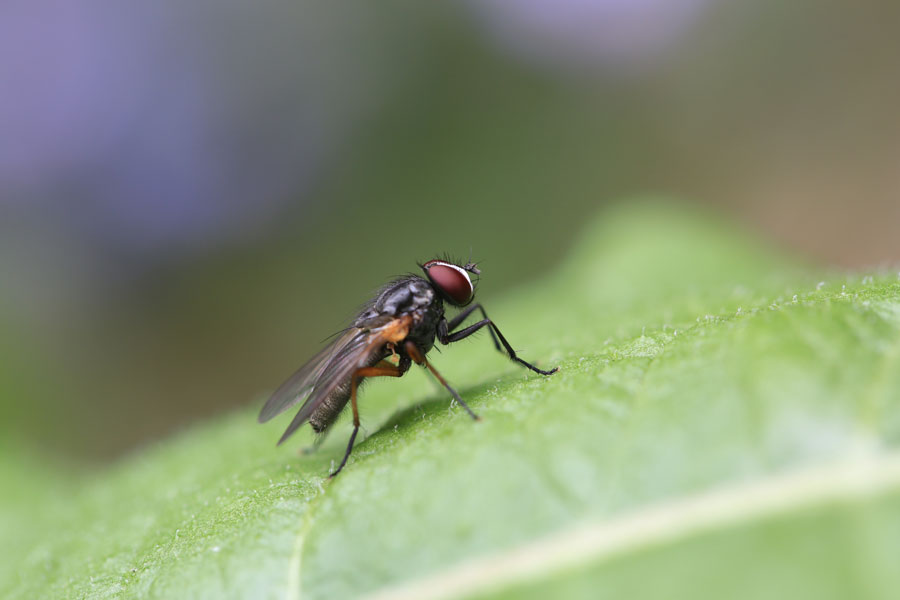Nervous systems of insects inspire efficient future AI systems
Study explores functions of fruit fly’s nervous system in food seeking / results valuable for the development and control of artificial intelligence

Symbolic image. Photo by Rob Pumphrey on Unsplash.
/UoC/ Zoologists at the University of Cologne studied the nervous systems of insects to investigate principles of biological brain computation and possible implications for machine learning and artificial intelligence. Specifically, they analysed how insects learn to associate sensory information in their environment with a food reward, and how they can recall this information later in order to solve complex tasks such as the search for food. The results suggest that the transformation of sensory information into memories in the brain can inspire future machine learning and artificial intelligence applications to solving complex tasks. The study has been published in the journal PNAS.
Living organisms show remarkable abilities in coping with problems posed by complex and dynamic environments. They are able to generalize their experiences in order to rapidly adapt their behaviour when the environment changes. The zoologists investigated how the nervous system of the fruit fly controls its behaviour when searching for food. Using a computer model, they simulated and analysed the computations in the fruit fly’s nervous system in response to scents emanated from the food source. ‘We initially trained our model of the fly brain in exactly the same way as insects are trained in experiments. We presented a specific scent in the simulation together with a reward and a second scent without a reward. The model rapidly learns a robust representation of the rewarded scent after just a few scent presentations and is then able to find the source of this scent in a spatially complex and temporally dynamic environment,’ said computer scientist Dr Hannes Rapp, who created the model as part of his doctoral thesis at the UoC’s Institute of Zoology.
The model created is thus capable to generalize from its memory and to apply what it has learned previously in a completely new and complex odour molecule landscape, while learning required only a very small database of training samples. ‘For our model, we exploit the special properties of biological information processing in nervous systems,’ explained Professor Dr Martin Nawrot, senior author of the study. ‘These are in particular a fast and parallel processing of sensory stimuli by means of brief nerve impulses as well as the formation of a distributed memory through the simultaneous modification of many synaptic contacts during the learning process.’ The theoretical principles underlying this model can also be used for artificial intelligence and autonomous systems. They enable an artificial agent to learn much more efficiently and to apply what it has learned in a changing environment.




